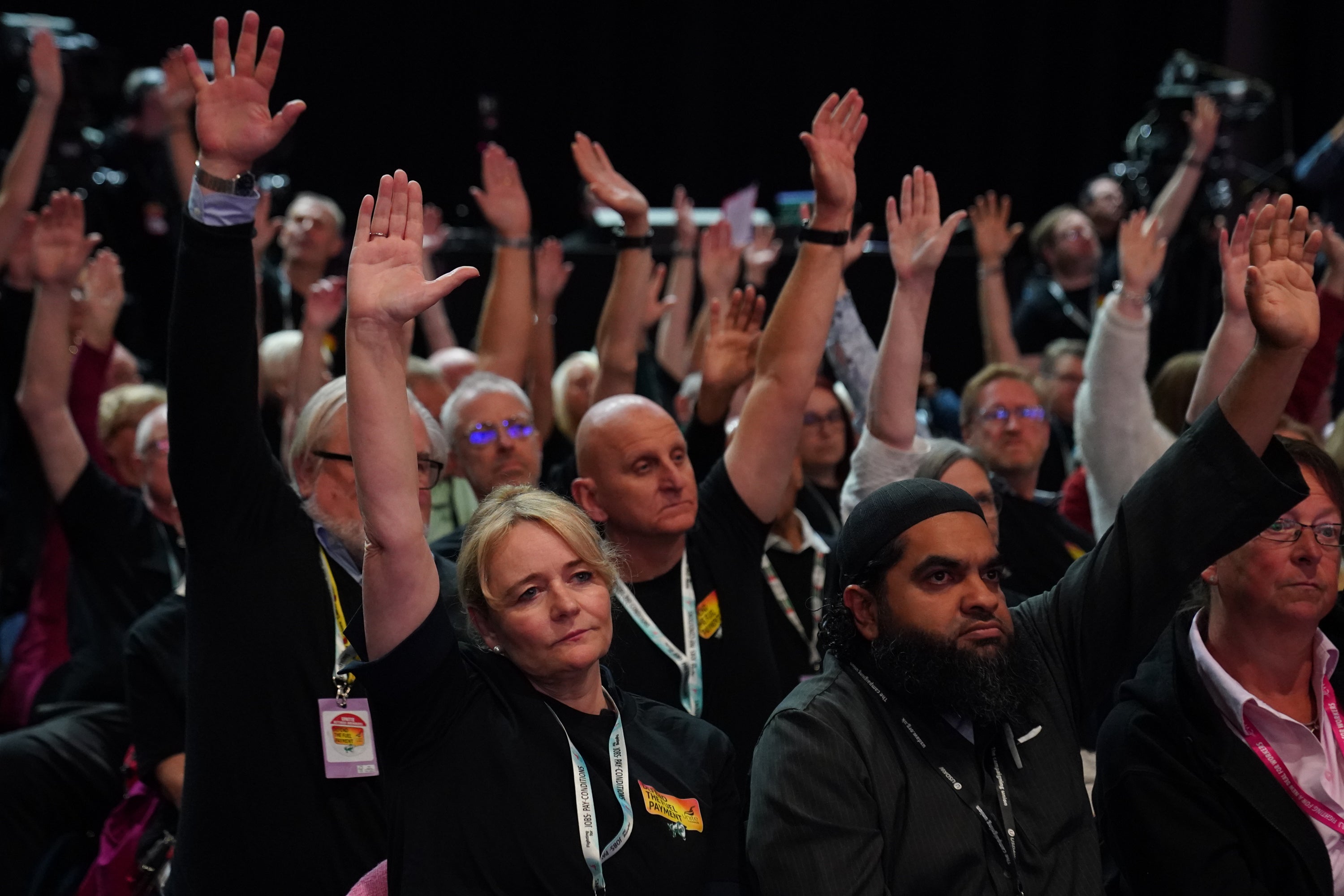Can Keir Starmer simply ignore a vote of Labour’s annual conference?
Rank-and-file members at conference – Labour’s supreme policy-making body – have voted against the government’s decision to means-test pensioners’ winter fuel payments. John Rentoul explains why the cuts will go ahead regardless


In theory, the annual conference is the Labour Party’s supreme authority. Everyone has heard of Clause IV of the party’s constitution, which sets out its aims and values, and which was rewritten in 1995 to remove a commitment to “common ownership”. Less well-known is Clause VI, which declares: “The work of the party shall be under the direction and control of party conference.”
That is not how it works in practice, however, because the leader has so much power – especially if he (and one day no doubt she) has the support of a majority of members of the National Executive Committee (NEC).
The NEC is charged with running the party in between annual conferences, although in practice most of its power is exercised by the leader through the cabinet (in government) and shadow cabinet (in opposition).
So, who decides policy?
For much of the party’s existence, this tension between theory and practice has fuelled factional conflict as supporters of Tony Benn and, later, Jeremy Corbyn tried to translate their majority among delegates into control of the party machine.
The Bennite insurgency briefly succeeded in imposing its policies on a reluctant leader – Michael Foot – and a reluctant shadow cabinet. But it wasn’t enough for the Bennites to control the votes at the party conference: what was critical was that they had a majority in the “Clause V” meeting. Clause V being another vital part of the constitution, which says that the election manifesto should be decided by a joint meeting of the shadow cabinet and trade union representatives.
Thus it was that Labour fought the 1983 election on what Gerald Kaufman, shadow environment secretary, called the “longest suicide note in history” – and was crushed.
What happened under Jeremy Corbyn?
When Benn’s politics were revived in 2015, the issue of who controls policy became a live one again. It turned out to be surprisingly difficult for Corbyn to assert his control over policy. In particular, he had to accept Labour’s support for the nuclear deterrent, partly because the trade unions defended the policy.
He also struggled to arrive at a coherent position on Brexit, which wasn’t so much of a problem in the 2017 election, because Theresa May’s troubles were greater, but he ended up in a peculiar place in the 2019 election.
His difficulty was essentially political, in that he was trying to reconcile his own Euroscepticism with the pro-EU sympathies of many of his supporters – but part of it was played out in the conference hall as Keir Starmer, his shadow Brexit secretary, tried to change policy from the platform.
What happened on Wednesday?
There was a vote on a motion tabled by two unions, Unite and the communications workers, demanding that the cut in winter fuel payments be reversed. It was carried on a show of hands, and there was no attempt to call for a card vote – a full count that would have revealed exactly how much support the motion had. Presumably, the Labour leadership knew that they had been defeated decisively.
Sources close to Starmer continued to be defiant, saying that the vote will be “noted… and ignored”.
There is nothing that the opponents of the cut can do to enforce the vote. It is embarrassing for Starmer and Rachel Reeves, the chancellor, but nothing more.
And the embarrassment could even be turned a little to their advantage if they use the defeat as a way of dramatising how difficult the decision was, emphasising their determination to see it through.






Join our commenting forum
Join thought-provoking conversations, follow other Independent readers and see their replies
Comments